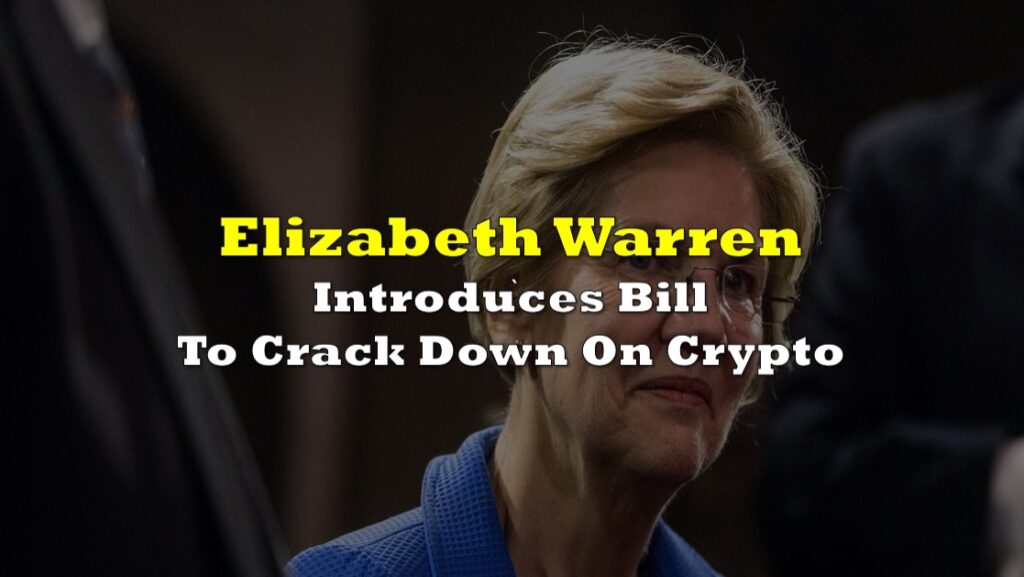A group of 20 congressional Democrats is urging officials at the Treasury Department to revise federal guidance, in an effort to prevent financial institutions from discriminating against marijuana business owners based on prior cannabis-related activities that have since been legalized at the state level.
The bipartisan group, led by Senators Elizabeth Warren (D-MA), Jeff Merkley (D-OR), Raphael Warnock (D-GA), and Representative Earl Blumenauer (D-OR), sent a letter on Tuesday to Treasury Secretary Janet Yellen and Financial Crimes Enforcement Network (FinCEN) Director Andrea Gacki.
1/ Perhaps flying under the radar today is this article on Dem lawmakers urging the Treasury / FinCEN for updated guidance on legal cannabis businesses.
— Sammy J (@sammyj_19) November 15, 2023
As we know, an update would be triggered in the event of SAFE(R)'s passing, but is now being requested irrespective of reform: https://t.co/xk43PUpD8k pic.twitter.com/97SI0a3HBN
The lawmakers argue that the existing guidance, established during the Obama era, is outdated and poses unnecessary obstacles for businesses whose owners engaged in marijuana-related activities that are no longer criminalized at the state level.
The letter emphasizes the need for updated guidance in line with the evolving landscape of state-level marijuana legalization. As the Biden administration and congressional lawmakers actively pursue incremental cannabis reform, the coalition suggests that federal financial agencies should modernize their guidance. The goal is to prevent regulators from discriminating against cannabis businesses operating in compliance with state laws.
The lawmakers propose that the updated guidance should clarify that past marijuana-related activities, expunged, pardoned, or no longer illegal under state law, should not be considered a ‘red flag’ for financial institutions conducting customer due diligence on marijuana businesses. This, they argue, would promote fairness in providing financial services to businesses engaged in state-sanctioned marijuana activity.
Under the current guidance, FinCEN instructs banks and credit unions to view past marijuana-related activities, regardless of state laws, as potential ‘red flags’ that could impact the businesses’ eligibility for financial services. The lawmakers argue that this standard has contributed to racial disparities and fails to acknowledge state reform efforts.
The letter cites instances where the existing guidance disproportionately affects Black- and Brown-owned businesses, as owners from these communities are more likely to have a marijuana-related conviction. The lawmakers argue that such discriminatory practices hinder business growth, potentially forcing them to operate on a cash-only basis and exposing workers to safety risks.
The coalition calls on FinCEN to address these issues by updating its 2014 guidance, considering recent marijuana decriminalization, expungements, and pardons at the state level. The letter seeks clarification on whether FinCEN plans to update its guidance regarding state laws that prioritize marijuana business licenses for those with past marijuana-related convictions.
The lawmakers also want to know about FinCEN’s efforts to monitor and promote fair access to financial services for state-sanctioned marijuana businesses, especially those owned by minorities, women, veterans, Tribal communities, and small business owners with past marijuana-related convictions.
This congressional push comes amid heightened anticipation for Senate action on a bill protecting financial institutions working with state-legal marijuana businesses from federal regulatory penalties. While the bill cleared the Senate Banking Committee in September, concerns about its prospects in the House have delayed further action.
Treasury Secretary Yellen has previously expressed frustration with the lack of congressional progress on legislation like the SAFE Banking Act. Last year, she highlighted the Treasury’s support for the proposal, emphasizing the need to address unique financial challenges within the cannabis industry.
Information for this story was found via the sources and companies mentioned. The author has no securities or affiliations related to the organizations discussed. Not a recommendation to buy or sell. Always do additional research and consult a professional before purchasing a security. The author holds no licenses.











